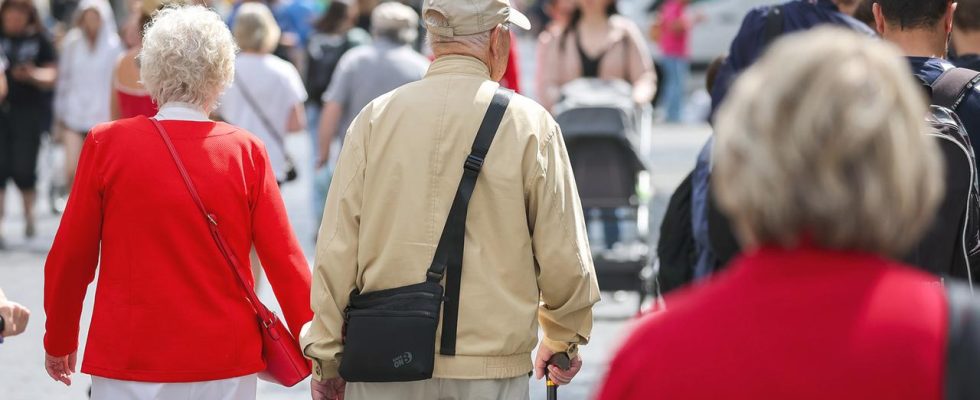faq
An “offer for other close relationships”, but not an alternative to marriage: Justice Minister Buschmann is today presenting the key points for the introduction of communities of responsibility. What does that actually mean?
The traffic light government wants to introduce a new model for people who take long-term responsibility for each other without getting married. As part of a so-called community of responsibility, single people should be able to support each other better in everyday life.
The project is not new. It is part of the coalition agreement between the SPD, the Greens and the FDP. It says: “We will introduce the institute of community of responsibility and thus enable two or more adult people to take legal responsibility for each other, beyond love relationships or marriage.” What this should look like in concrete terms is now in the key points of Federal Justice Minister Marco Buschmann (FDP).
What is a Community of responsibility?
The model is aimed at communities of two to six people who, for example, live together and want to help each other in an emergency. The exact nature of this relationship is not specified. There should be an “actual personal closeness relationship,” according to the key points paper. But it is not controlled by the state. As an example, the Ministry of Justice cites two older women who live without a partner or relatives and support each other.
The Federal Government’s Queer Commissioner, Sven Lehmann, also sees this as progress for queer people to legally protect their adopted family. The Green politician told the Germany editorial network. “For lesbians, gays or transgender people, it is often the chosen family that has taken the place of the family of origin due to rejection after coming out,” explained Lehmann. Responsibility and care for each other are not only lived in marriage or romantic relationships, but also in friendships.
What does the concept bring?
From a legal perspective, it is about a legal framework to legally secure relationships. To this end, a “law on the community of responsibility” is to be introduced. What exactly this framework looks like can be regulated on a case-by-case basis – depending on the level of responsibility desired. It is intended that “the parties should be able to choose between stages and modules with clearly defined legal consequences”.
In the basic level of the model, the contractual partners should, for example, be taken into account when selecting a legal guardian. A selectable module could, for example, stipulate that doctors are released from their duty of confidentiality in emergency situations. Contractual partners could then, for example, make decisions about medical interventions.
Buschmann admits that individual powers of attorney can be used to create something similar to a community of responsibility. But the community of responsibility offers two advantages. “Firstly, you can do everything in one go and put together exactly the right model at the notary. In addition, the community of responsibility has a symbolic added value. Anyone who enters into it gives a social relationship a structure and a positive name.”
How do you close and exit one? Community of responsibility?
According to the key points paper, communities of responsibility must be notarized. This is intended to ensure that the consequences of the contract are adequately explained. However, you shouldn’t have to go to the registry office.
A change or the end of a community must also be notarized and should be possible at any time. The dissolution can also be carried out by individual partners.
What is the difference from marriage?
The regulations on marriage remain unaffected, as does the special protection provided by the state as set out in the Basic Law. A community of responsibility should have no impact on the parent-child relationship; there will be no tax relief, nor will there be any consequences under inheritance law or maintenance obligations. However, anyone who wants can regulate the equalization of assets after a community of responsibility has ended, said Buschmann.
How are the plans received?
Praise comes from the German Social Association (SoVD). Living circumstances, partner models and family systems have changed a lot over the years, said SoVD board chairwoman Michaela Engelmeier to the RND. “Taking this into account is a good approach – especially in times when the proportion of people living alone continues to rise and society continues to age.”
The Union faction is critical of the plans. A new model is unnecessary because the corresponding contracts can already be concluded with a notary. “Nobody will be able to control what kind of connection there is between people in such a community of responsibility,” said the parliamentary group’s legal policy spokesman, Günter Krings, to the RND.
Lea Eichhorn, ARD Berlin, tagesschau, February 5th, 2024 2:58 p.m

